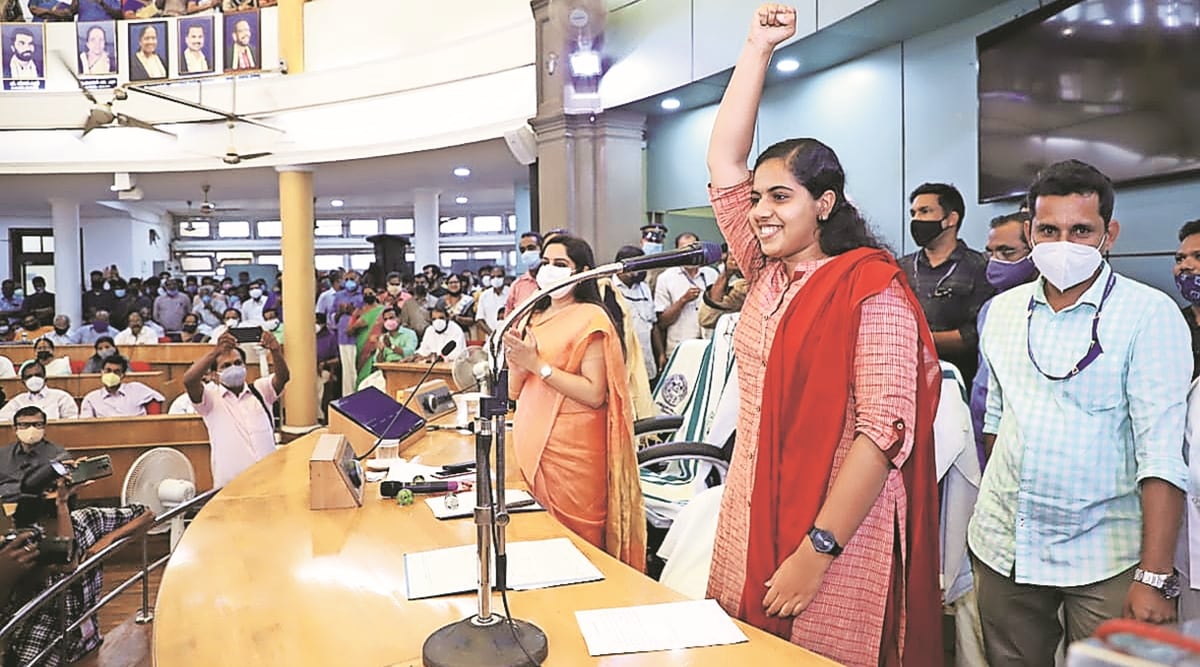 Arya Rajendran, a 21-yr-old college student and CPM leader, took oath as Thiruvananthapuram mayor Monday. (Express photo: Sanjay Mohan)
Arya Rajendran, a 21-yr-old college student and CPM leader, took oath as Thiruvananthapuram mayor Monday. (Express photo: Sanjay Mohan) Rajini Balaraj, 32, from Thirunelli village in Kerala’s Wayanad district, has been a worker under the Mahatma Gandhi National Rural Employment Guarantee Scheme (MGNREGS) since 2006. Over the years, she grew to become a “mate”, leading other NREGS workers in her ward. Two weeks ago, Balaraj achieved another feat: she is now one of the 2,159 NREGA workers to have emerged winners in the just-concluded local body elections in Kerala.
“The NREGA work and my job as a mate helped me learn a lot. I also developed a good network among people, and that helped me win,’’ said Balaraj, who belongs to a Scheduled Tribe.
According to official data from the MGNREGS State Mission, of the 15,961 recently elected village panchayats members, 2,007 are MGNREGS workers. Officials say this is probably the largest representation of NREGS workers in panchayat bodies.
Considering women make up around 90 per cent of NREGS workers in Kerala, it’s no surprise that 1,863 of the 2,007 NREGS winners at the village-level are women.
Besides, 147 NREGS workers — 140 of them women — have been elected to various block panchayats (there are 2,081 members in all at the block panchayat level).
According to MGNREGS State Mission officials, these figures are a sign of grassroot-level empowerment. “It’s a sign of the strength of our democracy and panchayati raj system,” said an official.
Like Balaraj, most of the winning panchayat members are ‘mates’ — NREGA workers who, by virtue of their experience, end up as team leaders.
“Each group of MGNREGS workers has a mate, who manages the workers, prepares muster rollers and interacts directly with panchayat officials and people’s representatives. This experience helps them acquire leadership qualities and management skills. The recent victories also go to show that MGNREGS has created grassroot-level leaders — one of the key impacts of the scheme on society,’’ the official said.
Many of the women MGNREGS workers are also part of the Kudumbashree Mission, Kerala’s flagship poverty alleviation and women empowerment scheme.
In the wake of the Covid-19 induced economic crisis, the demand for NREGS has gone up sharply in the state, with several workers, cutting across age and gender, enrolling for the scheme.
Officials said that the state’s target for this fiscal was 8 crore job days, of which 6.80 crore job days have already been allocated. By the end of this fiscal, between 9-10 crore job days are likely to be used, they said.